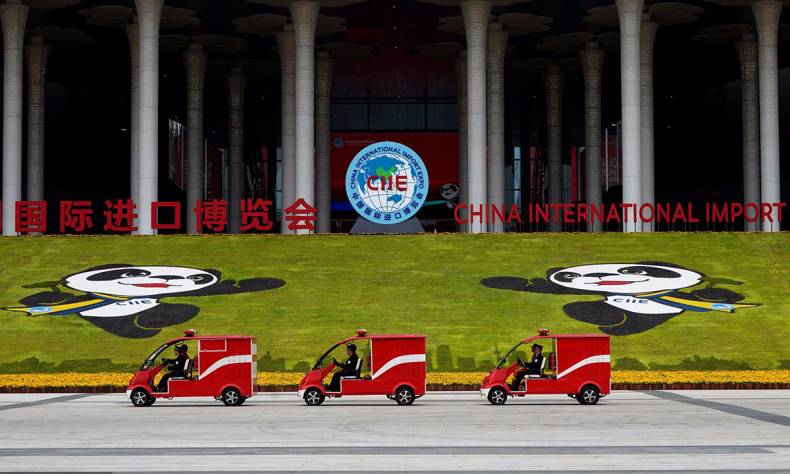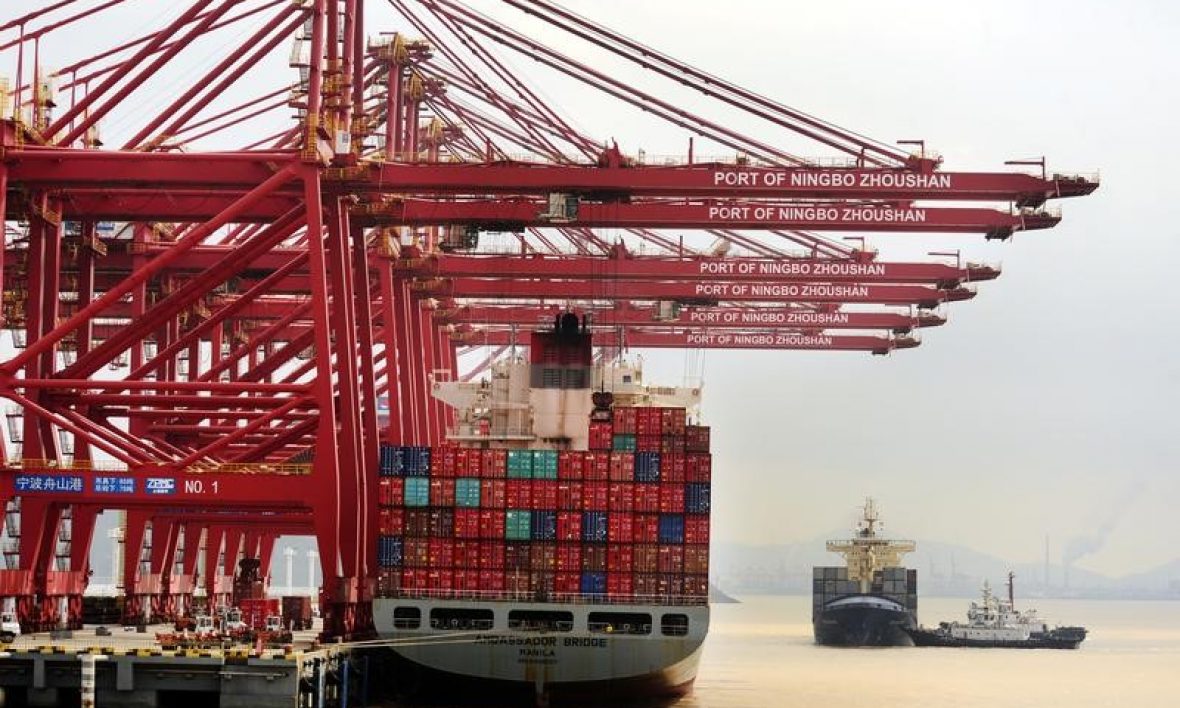
CIIE: Safeguarding Economic Globalization
The upcoming CIIE is expected to draw more than 150,000 purchasers from home and abroad.
The world’s first national expo on imports, the China International Import Expo (CIIE), will be held on November 5-10 in Shanghai and is expected to draw more than 150,000 purchasers from home and abroad. China is the world’s biggest exporter in terms of tangible goods trade, and the CIIE has attracted attention from around the world. To share experiences of market and economic progress with the world’s most populous country, which is also the second largest economy in the world, is very appealing to businesses around the globe.
The international community has a question: Is China’s expansion of imports sustainable or is it a forced choice under the pressure of the China-U.S. trade war?
For those who are familiar with China, the question is superfluous, since China’s policies and actions already tell the whole story.
While promoting the CIIE, the Chinese Government has called it the “first” one, which implies that this is not a one-time event. The expo showcases the Chinese Government’s sincerity and willingness to voluntarily open China wider to the outside world and also to assume its responsibility as a major power to push forward with economic globalization.
Since the 18th National Congress of the Communist Party of China in November 2012, the strategic policy of deepening reform and opening up in an all-round way has been widely pursued. Against the backdrop of anti-globalization measures by some developed economies, China’s strategy of furthering reform and opening up attests to its determination to safeguard economic globalization. In May 2017, Chinese President Xi Jinping announced at the Belt and Road Forum for International Cooperation that China would hold the CIIE starting in 2018, and it was hailed as an important decision for a new round of higher-level reform and opening up. China’s voluntary increase of imports will create a new driving force for global economic growth and inject new vitality into the world economy. It reiterates China’s persistent policy of upholding a multilateral trade system, pushing forward free trade, as well as building and safeguarding an open world economy.
The CIIE shows China’s inclusive and cooperative concept of development in building a community with a shared future for mankind, the ideological concept proposed by Xi and explained to the world on January 18, 2017, at the United Nations Office at Geneva. The Belt and Road Initiative is regarded by the international community as one of the practices in the process of building such a community, and the CIIE is one more tangible application.
This can be achieved only on a win-win basis of mutual cooperation and benefit, understanding and tolerance, as well as common development. The CIIE is exactly such a platform for the world. On the one hand, by expanding its importation, China is opening its market to commodities from other countries and offering them a free ride on the Chinese train of development and a chance to share China’s fruits of development. On the other hand, the CIIE offers assistance to the least developed countries, bringing them into the global value chain and globalization.
The CIIE is not only a place for goods and service trade, but also a comprehensive international platform for countries to present themselves and for global issues to be discussed. A string of supportive professional activities will be held during the CIIE, including supply and demand matchmaking meetings, industrial symposiums and product launches to help exhibitors and purchasers find their partners. At the same time, there will be international trade forums, joined by international organizations like the World Trade Organization and the UN Industrial Development Organization. The CIIE is thus a platform to gather economies that advocate economic globalization for the purpose of communicating, exhibiting and reaching cooperation agreements.
The CIIE is also being held to meet the Chinese people’s demand for a better life. China has already secured enough food and clothing for its vast population, with the people generally living a moderately well-off life. The public’s longing for a better life is reflected in their higher requirement for material and cultural goods, an upgrading of the consumption structure and more diversity. The expo will help to satisfy the public’s individualized, diversified and differentiated consumption demands, which is also a primary goal of the country’s development.
China boasts a vast market, with the extent of its opening up unprecedented. However, market behaviors are based on an equal footing. The final imports and which economies will achieve a breakthrough in the Chinese market during the expo will depend on China’s bilateral trade relations with these countries. For example, the world’s eyes are on whether U.S. bean distributors will be able to dominate the Chinese market as before and whether U.S. hi-tech companies will be able to expand their shares in the Chinese market by shaking off the U.S. Government’s reins.
Source: Beijing Review
 Facebook
Facebook
 Twitter
Twitter
 Linkedin
Linkedin
 Google +
Google +












